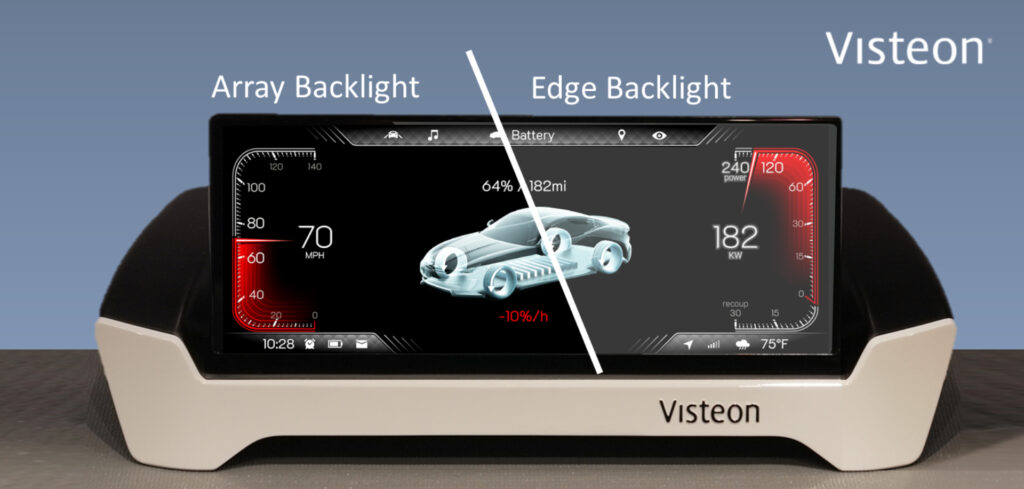Visteon Corporation says it has developed an integrated system that dynamically improves the contrast ratio of vehicle displays. The company’s solution uses proprietary advanced algorithms to control the full-array local dimming display. A matrixed array of LEDs behind the image plane are individually controlled to deliver luminance where needed, optimize pure-black content and drastically reduce power requirements.
The Visteon Local Dimming technology works with thin and curved screens as well as thin border display designs. The company notes that optical benefits include a higher perceptual display quality with minimized halo effect. Because the system requires fewer LED zones, power consumption can decrease by 70%, compared with other technologies. The production-ready solution is inherently compatible with electric vehicle systems and with other advanced display technologies offered by Visteon, such as Active Privacy and TrueColor Image Enhancement.
The system controls the display dynamics based on the image content. An algorithm directs the underlying LEDs to be brighter in regions with bright content or to be very dim or off behind regions of the screen with dark or black content. This dynamic back-lighting layer delivers a tenfold increase in the contrast of the display (from 1K:1 to 10K:1). Significant power savings are an additional benefit of the LED control algorithm, which continually calculates optimal luminance requirements.
“The market is increasingly seeking high-perceptual-quality displays and reduced power solutions. Our unique local dimming solution improves the contrast ratio at a more affordable price than premium solutions and provides significant reductions in power consumption. This technology leads to high perceptual quality in affordable displays that use less power. Visteon’s expertise in both display optics and algorithms enables us to excel in this technology category,” said Qais Sharif, global VP of Visteon’s display product line. “The Visteon Local Dimming systemic approach balances system cost, contrast improvement and image halo management.”



